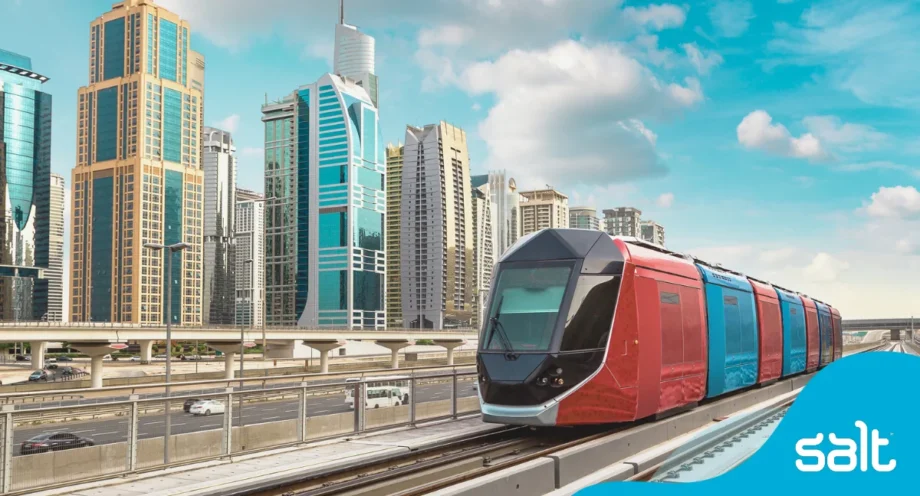Saudi Arabia relocation guide
Relocating to Saudi Arabia can be both financially rewarding and culturally enriching.

Relocating to Saudi Arabia can be both financially rewarding and culturally enriching. Deeply rooted in their Islamic heritage and traditions, Saudi Arabia is home to some of the holiest cities in the world. It offers expats the chance to work in a truly diverse and globally renowned market across a wide range of different industries.
While it may be different culturally from many Western countries — it is home to many cosmopolitan cities that boast futuristic architecture, historic sites and decadent malls.
Saudi Relocation Guide and why it matters for talent and employers
-
Living and Working in Saudi Arabia: Visa and Residency Basics
Sponsorship
To work in Saudi Arabia, you need a local sponsor. Usually your employer. They arrange your work visa and residency permit (Iqama).Work and Residence Visas
The process can take a few months. Expect to provide your employment contract, proof of qualifications, and medical test results through the Saudi consulate in your home country. Once approved, you’ll enter Saudi Arabia with a work visa that converts into your Iqama.Visitor Visas
Saudi Arabia now offers tourist eVisas and visas on arrival for many nationalities. For business visits, an invitation from a company or organisation may still be required.Exit and Re-Entry
Historically, expats needed employer approval to travel out of Saudi. Reforms mean many workers can now apply for exit/re-entry permits more easily, but requirements vary by visa type.Role of the Sponsor
Sponsors are legally responsible for expatriate employees while in the Kingdom, including compliance with visa rules and residency laws. -
Driving in Saudi Arabia
Road Rules
Cars drive on the right-hand side. Both men and women are permitted to drive. Vehicles can be rented or purchased with a valid driving licence; international licences are accepted for rentals.Key Local Terms
Istimara – Your vehicle registration card. Must be kept in the car at all times and renewed every 3 years.Fahs – A vehicle inspection sticker on the windshield proving the car is roadworthy.
Al Moroor – The traffic police. If you buy or sell a car, you’ll need to visit a local station for paperwork sign-off.
Exhibition – A dealership (new or used cars).
-
Cost of living in Saudi Arabia
Attractive Living Costs
Compared with other global hubs, Saudi Arabia offers relatively low living expenses. For example, average rent is estimated to be ~60% lower than in the UK and ~74% lower than in the US.Tax Benefits
There is no personal income tax in Saudi Arabia. The only standard tax for residents is 15% VAT on goods and services.Disposable Income
With competitive wages and tax advantages, professionals relocating often see a boost in disposable income and savings potential.Estimated Monthly Costs
Family of four: 10,000 – 20,000 SAR
Single person: 5,000 – 10,000 SAR
-
Safety in Dubai
When moving to Saudi Arabia, you can look forward to enjoying an extremely safe way of life. The city boasts some of the lowest crime rates globally. Saudi Arabia has both capital and corporal punishment in place as the country is governed by Sharia (Islamic Law) as its national law.
-
Banking and money
Currency
The local currency is the Saudi Riyal (SAR), divided into 100 halala.Banking System
Saudi Arabia has a modern and well-regulated banking system, overseen by the Saudi Central Bank (SAMA). Expatriates have access to current and savings accounts, online and mobile banking, and an extensive ATM network.Cards and Payments
Major credit cards including Visa, MasterCard, and American Express are widely accepted in shops, hotels, and restaurants. Contactless and mobile payments are also increasingly common.Opening a Bank Account
Expatriates can open local bank accounts once they receive their Iqama (residency permit). Typically, you will need:- Your valid Iqama
- Passport and visa details
- Proof of address in Saudi Arabia
- A letter from your employer confirming your employment and salary details
Some banks may request additional documents, and the process usually involves linking your account with your Absher (government services) profile.


